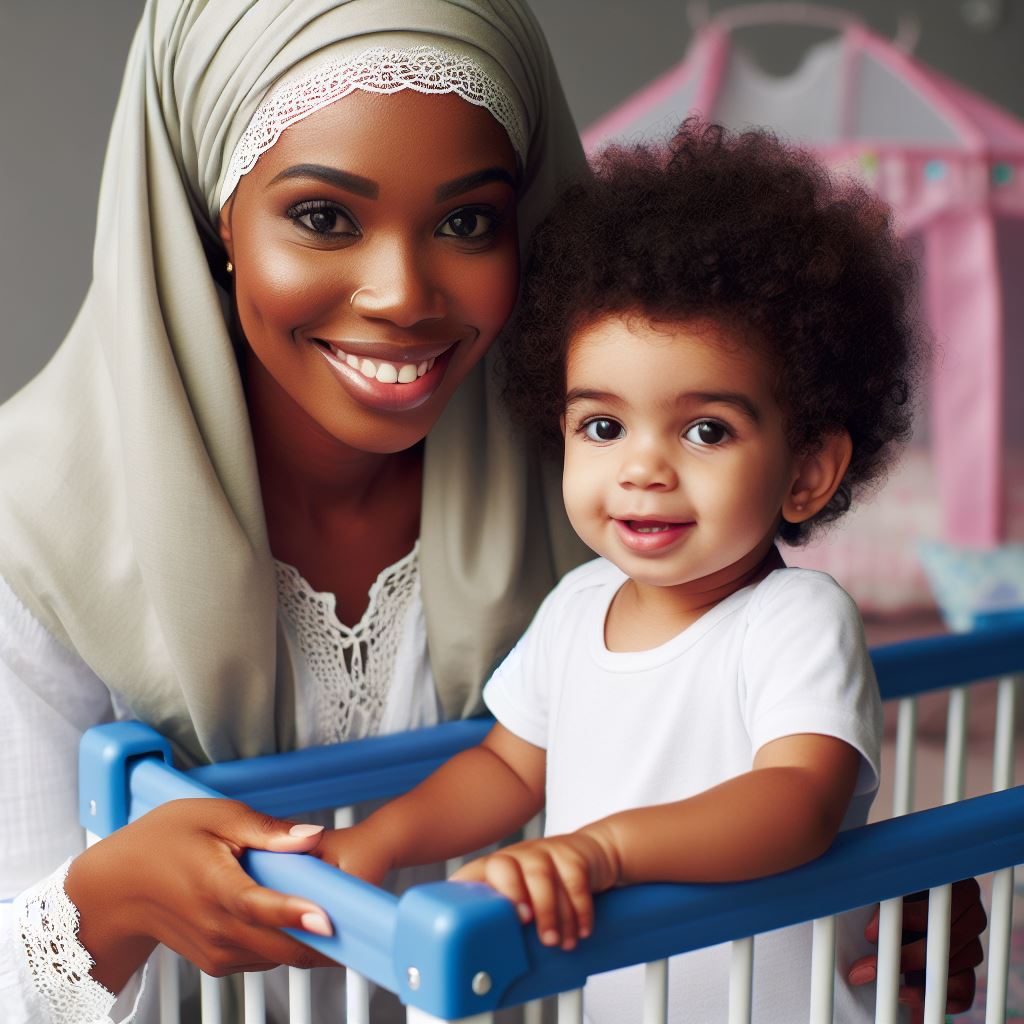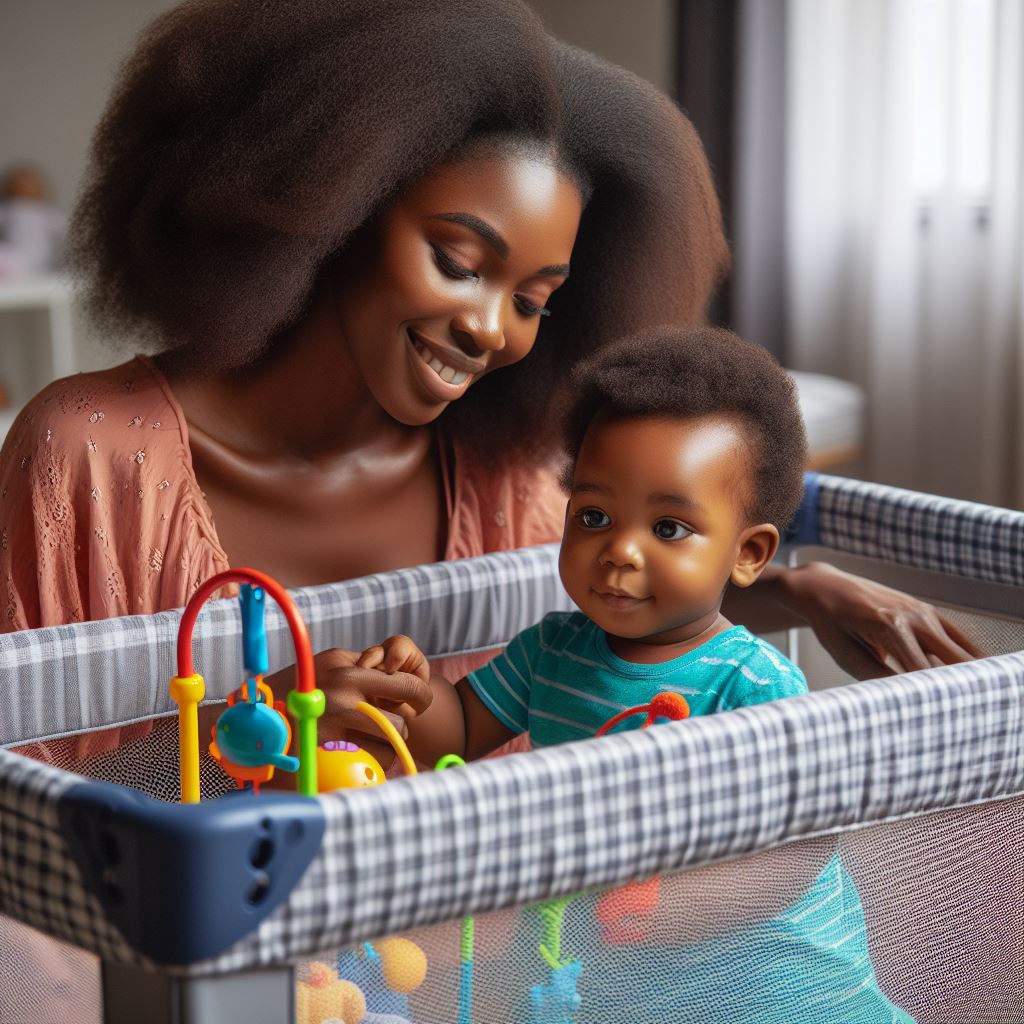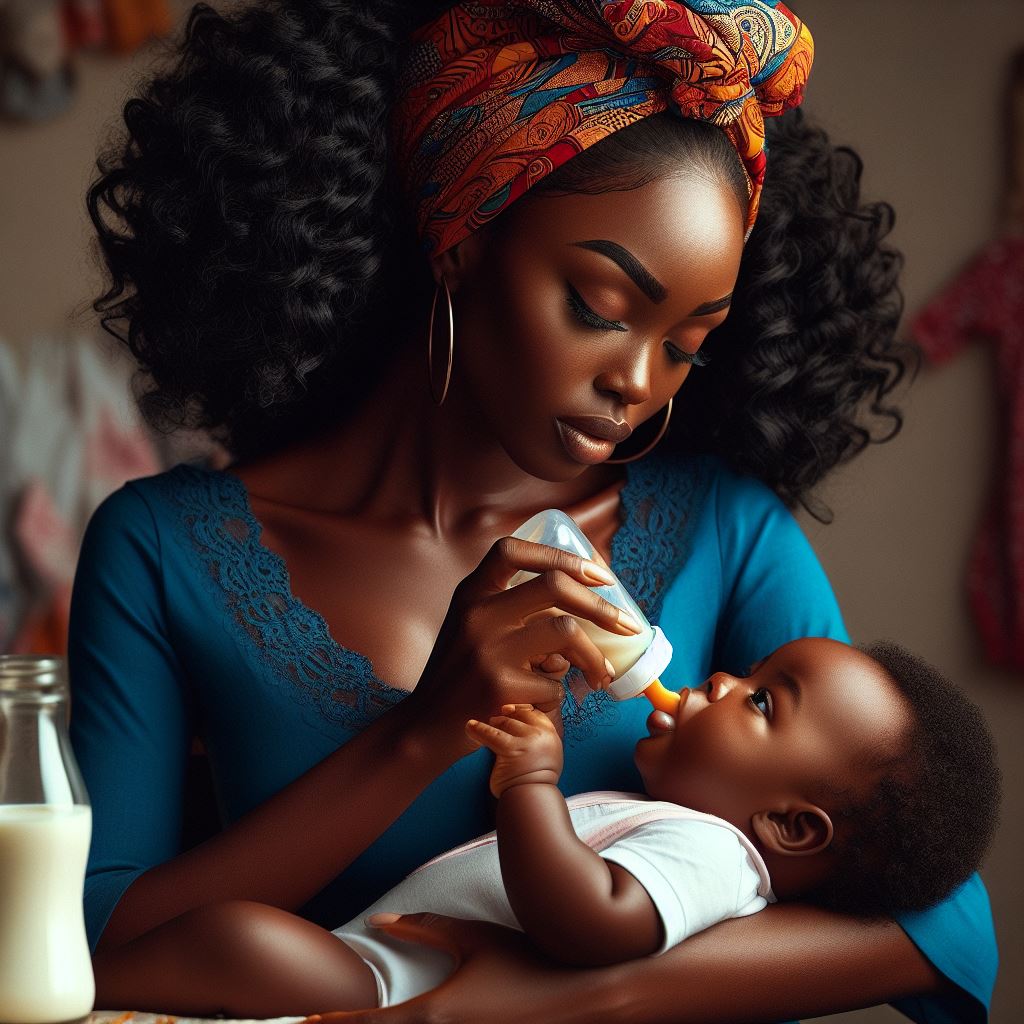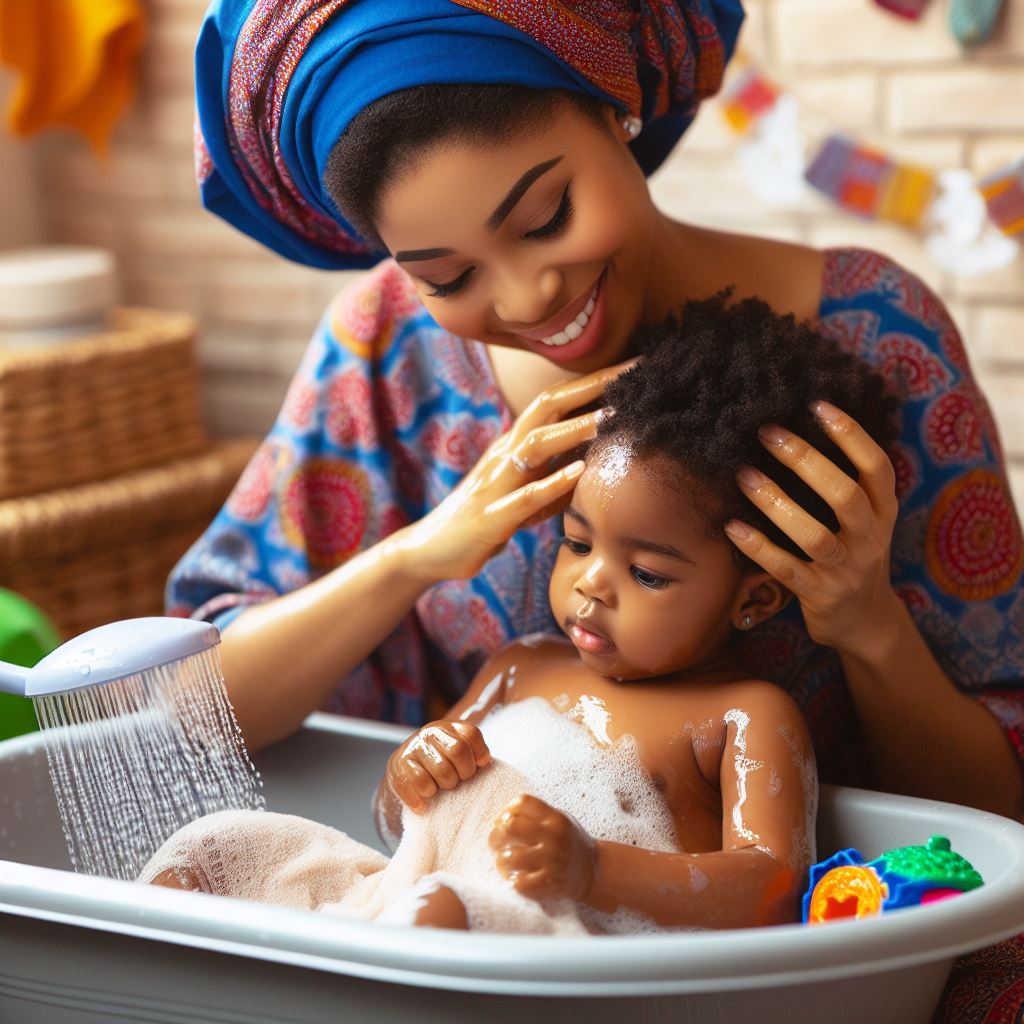Introduction
Importance of Emotional Development in Babies
Emotional development in infants profoundly shapes their lifelong well-being.
Babies’ early emotional experiences serve as building blocks, laying the foundation for their social interactions, relationships, and mental health.
These initial years are critical, as they mark the period when the brain develops rapidly, forming connections crucial for emotional regulation and social understanding.
The nurturing environment plays a pivotal role in this process, impacting a baby’s ability to express, perceive, and manage emotions.
Understanding and supporting a baby’s emotional development foster resilience, empathy, and healthy coping mechanisms. It enables them to navigate life’s challenges effectively.
Cultural Context and the Nigerian Perspective
Nigeria, a country rich in diverse cultures and traditions, places immense value on familial connections and communal ties, all of which deeply influence a baby’s emotional development.
In Nigerian communities, extended families often actively participate in childcare, providing a network of emotional support.
This collective approach ensures that infants receive ample care, attention, and a sense of belonging from various family members.
Cultural practices, songs, storytelling, and rituals are integral in shaping a baby’s emotional world.
These traditions imbue values of respect, empathy, and resilience from an early age.
Moreover, the concept of ‘Ubuntu’—a philosophical belief emphasizing interconnectedness and humanity—underscores the Nigerian approach to nurturing emotional intelligence.
This principle instills the importance of empathy, cooperation, and communal harmony in child-rearing practices.
In summary, exploring emotional development in babies from a Nigerian perspective unveils the profound influence of culture, family dynamics, and communal values.
Recognizing these influences provides invaluable insights into effective strategies for supporting and enhancing the emotional well-being of Nigerian infants.
Understanding the significance of emotional development and the cultural context within which it unfolds sets the stage for exploring specific practices and strategies beneficial for fostering healthy emotional growth in Nigerian babies.
Parenting Made Just for You
Get personalized Parenting Solutions tailored to your child’s needs. Transform your parenting journey with expert guidance in 1-3 days.
Get StartedUnderstanding baby’s emotional development
Emotional development is a crucial aspect of a baby’s overall growth and well-being.
Understanding how babies develop their emotions is essential for parents to provide proper support and care.
In this section, we will explore the stages of emotional development in infancy and the key milestones to look for.
Stages of emotional development in infancy
- Birth to 3 months: During this stage, newborn babies primarily communicate through facial expressions and basic sounds, such as crying or cooing.
They rely heavily on their caregivers for comfort and rely on them for their emotional needs. - 3 to 6 months: As babies grow, they start to express a wider range of emotions. They begin to develop social smiles and respond to their caregivers’ facial expressions and voices.
They may also show signs of distress or frustration when their needs are not met. - 6 to 9 months: Around this time, babies become more aware of their surroundings and develop a stronger sense of attachment to their primary caregivers.
They may start to show separation anxiety when separated from their parents or primary caregivers. - 9 to 12 months: At this stage, babies begin to develop a sense of self and recognize themselves in the mirror. They may also become more assertive in expressing their preferences and desires.
Language development also plays a significant role in their emotional development during this period.
Key milestones and behaviors to look for
- Social responsiveness: Babies start to show signs of social responsiveness by smiling and cooing in response to their caregivers’ interactions.
They may also start to imitate facial expressions and gestures. - Attachment and separation anxiety: Around 6 to 9 months, babies develop strong attachment bonds with their primary caregivers and may show signs of distress when separated from them.
Separation anxiety is a normal part of their emotional development. - Emotion regulation: As babies grow, they begin to develop the ability to regulate their emotions.
They may start to self-soothe by sucking on their fingers or holding onto a comfort object, such as a favorite toy or blanket. - Communication: Language development plays a vital role in emotional development. Babies may start babbling and using simple words to express their needs and emotions.
They also rely on non-verbal cues, such as pointing or reaching, to communicate. - Social interactions: Babies become more engaged in social interactions. They may try to initiate play with their caregivers or show interest in other babies.
They also start to understand and respond to simple social rules and expectations.
In fact, understanding a baby’s emotional development is essential for parents to create a nurturing and supportive environment.
By recognizing the stages of emotional development and key milestones, parents can better respond to their baby’s emotional needs and promote healthy emotional growth.
Read: Compact & Travel-Friendly Baby Gear in NG
Cultural influences on emotional development
Importance of family and community in Nigeria
- The strong emphasis placed on family and community in Nigeria greatly impacts a baby’s emotional development.
- Nigerian families typically have a large network of extended family members who play a significant role in a child’s upbringing.
- These family members provide additional emotional support, guidance, and a sense of belonging to the child.
- The Nigerian community as a whole also plays a vital role in shaping a baby’s emotional well-being.
- Neighbors, friends, and other community members actively contribute to the child’s social interactions and emotional growth.
Traditional practices impacting emotional development
Bonding with extended family members
- Extended family members in Nigeria play a significant role in a child’s emotional development, providing a secure attachment.
- Spending time with grandparents, aunts, uncles, and cousins helps the baby form strong emotional bonds and develop a sense of identity.
Rituals and customs related to childbirth
- In Nigeria, specific rituals and customs surround childbirth, impacting the baby’s emotional development from the very beginning.
- These rituals include naming ceremonies, where the child is officially introduced to the community, strengthening their bond within the cultural context.
- Traditional practices like “omugwo” – a period when the new mother is cared for by her own mother – promote emotional well-being for both mother and child.
Role of music, storytelling, and dance in emotional development
- In Nigerian culture, music, storytelling, and dance are integral parts of daily life and strongly influence a baby’s emotional development.
- Infants are exposed to traditional music and songs which invoke emotions, promote bonding, and stimulate cognitive development.
- Storytelling serves as a means to pass down cultural values and morals, while engaging the child’s imagination and emotional understanding.
- Dance is not only a form of self-expression in Nigeria but also a way to celebrate and connect with others, fostering emotional connections.
In short, the cultural influences on emotional development in Nigeria are profound.
The importance placed on family and community, bonding with extended family members, the impact of childbirth rituals and customs, and the role of music, storytelling, and dance all contribute significantly to a baby’s emotional well-being in the Nigerian context.
Understanding and appreciating these cultural influences is vital in providing the best environment for a baby’s emotional development in Nigeria.
Read: Balancing Tradition & Modern Advice in Baby Care

Nurturing baby’s emotional development in a Nigerian context
A baby’s emotional development is crucial for their overall well-being and future success.
In a Nigerian context, there are certain factors that can greatly influence and nurture a baby’s emotional growth.
Creating a secure and loving environment
Parents and caregivers should create a warm and safe environment to foster emotional development.
This includes providing a stable and consistent routine, showing affection, and offering a sense of security.
Unveil the Perfect Name that Tells Your Family's Story
Let us help you find a name that embodies your family's values, traditions, and dreams. Our personalized consultation weaves cultural insights to create a name that's uniquely yours.
Get StartedBuilding strong attachments with caregivers
It is essential for babies to form secure attachments with their caregivers.
This can be achieved through responsive parenting, providing comfort and support, and being emotionally available for the baby’s needs.
Encouraging social interactions with family and community
Babies should be exposed to social interactions from an early age.
In a Nigerian context, this involves involving extended family members and the local community in the baby’s life.
It helps in developing a sense of belonging and emotional connectedness.
Promoting emotional expression and communication
Parents and caregivers play a vital role in teaching babies how to express and communicate their emotions effectively.
They can do this by validating their feelings, providing emotional support, and encouraging healthy emotional expression.
Balancing tradition and modern approaches
Nigerian culture is rich in traditions and practices that impact child-rearing.
Finding a balance between traditional approaches and modern understandings of child development is crucial for a baby’s emotional development.
It allows for cultural preservation while also embracing new knowledge and practices.
In general, nurturing a baby’s emotional development in a Nigerian context requires creating a secure and loving environment, building strong attachments with caregivers, encouraging social interactions, promoting emotional expression and communication, and finding a balance between tradition and modern approaches.
By prioritizing these factors, parents and caregivers can ensure that babies grow up emotionally healthy and resilient, setting a strong foundation for their future well-being.
Read: 19-24 Months: Enhancing Toddler Skills
Challenges and Potential Solutions
Impact of Urbanization and Modernization on Emotional Development
Rapid urbanization and modernization in Nigeria have posed challenges to baby’s emotional development.
Busy city life and limited spaces have reduced opportunities for outdoor play and social interactions.
Solution
Developing child-friendly urban spaces, playgrounds, and parks can allow children to engage in social interactions and emotional expression.
Initiatives like “Play Streets” can be implemented, where certain streets are designated for child-friendly activities on specific days.
Encouraging parents to prioritize quality time with their babies, engaging in activities that promote emotional bonding, is crucial.
Increased Exposure to Technology
The increased access to technology for babies in Nigeria has impacted their emotional development negatively.
Excessive screen time and passive consumption of content hinder social and emotional interactions.
Solution
Promoting educational and interactive content for babies on screens can enhance their cognitive and emotional development.
Parents and caregivers should set limits on screen time, encourage interactive play, and engage in meaningful conversations with their babies.
Education and Awareness for Parents and Caregivers
Lack of knowledge and awareness about the importance of emotional development in babies is a concerning issue.
Many parents and caregivers are not equipped with the necessary skills to support their baby’s emotional growth.
Solution
Implementing comprehensive parenting and caregiver programs that focus on emotional development.
These programs should provide information on the importance of emotional bonding, positive discipline techniques, and understanding baby’s emotions.
Collaboration with healthcare professionals, community organizations, and schools can help reach a wider audience and provide necessary support.
In a nutshell, while challenges like urbanization, modernization, increased technology exposure, and lack of awareness pose threats to a baby’s emotional development in Nigeria, potential solutions exist.
By creating child-friendly urban spaces, promoting interactive screen content, and providing education and awareness to parents and caregivers, we can enhance the emotional well-being of Nigerian babies.
It is essential to prioritize emotional development to ensure a brighter future for our children.
Read: Nigerian Trends in Baby Gear for 2024
Conclusion
Throughout this blog post, we have explored the importance of baby’s emotional development from a Nigerian perspective.
We have discussed the different stages of emotional development and how they can impact a child’s overall well-being.
It is crucial for parents to understand the significance of nurturing their baby’s emotional development.
By creating a safe and loving environment, parents can foster healthy emotional connections and build a strong foundation for their child’s future growth.
The Nigerian perspective on baby’s emotional development offers a rich cultural context where community, family, and traditions play a significant role.
Nigerian parents have a unique opportunity to incorporate their cultural values into nurturing their child’s emotional well-being.
Prioritizing a baby’s emotional development is fundamental for their overall growth and well-being.
Nigerian parents can draw on their unique perspective to create a nurturing environment that supports the emotional needs of their child.
By understanding the stages of emotional development, parents can foster healthy emotional connections, laying the groundwork for a successful future.




